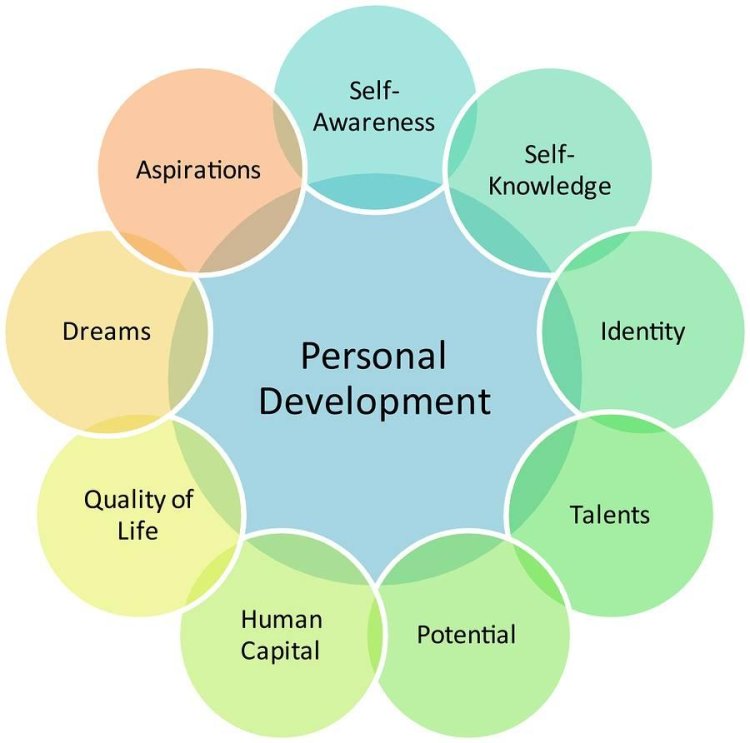8 Steps To Improve Your Self-Awareness
Another way to improve self awareness is by actively doing things that make you feel good. Set aside social expectations.

Self-awareness is a skill you'll need to cultivate if you want to live a fulfilling life and reach your full potential. However, what exactly is self-awareness? Self-awareness boils down to knowing yourself well enough to make choices that respect your wants and requirements. This may involve things like ambitions, limits, and connections. Self-awareness is not necessarily a preexisting trait; rather, it is a taught competency.
Self-aware people are able to navigate the world in a way that respects their own feelings and preferences. This is a skill that can be taught, but some people may have an easier time picking it up than others. The good news is that developing a keener sense of self is possible with time and effort. The purpose of this post is to help you become more self aware. If you put these mindfulness techniques to use, you may discover that you are increasingly in tune with your own needs over time.
Evaluate & Understand Your Desires

Realising why you want the things you want is fundamental to knowing and accepting yourself. There is always a reason for everything, from the food you eat to the ambitions you set for yourself. If we are not in touch with our inner selves, we are more likely to make decisions that are not optimal for achieving our goals. "You want a connection, not a cookie," explains Melissa Hartwig Urban. This straightforward adage shows that our desires aren't always what they appear to be upon closer inspection.
Being conscious of the choices we make on a daily basis might help us stay true to our own interests. By taking this measure, we fortify ourselves against destructive habits of mind. We need to give some serious consideration to our wants and needs before acting on them. You should ask yourself if watching TV instead of working is really going to help you in the long run. Perhaps, and that's fine too. Don't just go through life on autopilot; instead, make an effort to actively participate in your own choices.
Practice Doing Things for Yourself
Doing things that make you happy might also help you become more self-aware. Put aside what other people think you should be doing and focus on what brings you joy. This could involve doing something on your own time or declining an invitation to a social gathering. Pay attention to your needs and desires and give yourself permission to indulge them. Changing your habit of putting the needs of others before your own may take some time. It's not easy to strike a balance, but you should treat yourself to things you enjoy.
Acknowledge Your Feelings
Don't try to stop your emotions or persuade yourself you shouldn't be feeling a certain way. We often repress our emotions for the sake of others or simply because we don't trust ourselves. Realise that your emotions are never completely random. Feelings are not dumb, embarrassing, or undeserving. You shouldn't feel obligated to broadcast your emotions to the world if you don't want to. Self-awareness can be greatly enhanced by the simple act of allowing oneself to feel and acknowledging your feelings.

Understand Your Emotional Triggers
Knowing what sets off negative emotions or tension in you is a crucial part of knowing and accepting yourself. Understanding the impact of your environment will help you better handle any challenges that may arise. Identifying your triggers might be especially helpful if you have never given much thought to the causes of your feelings of being overwhelmed, anxious, or stressed. This element of self-awareness, however, can be challenging. It's not enough to simply accept your emotions; you must also learn to decipher their source. Though it may take some time, the following guidelines can help you begin the process of identifying your emotional triggers:
Think about the ways in which you've felt this way before.
Figure out who in your life brings you down and who lifts you up.
Recognise when you're feeling uneasy about a subject.
Understanding and overcoming emotional triggers can be challenging without assistance. Never be too proud to ask for assistance. If you need help overcoming emotional triggers, you could consult a friend, therapist, or life coach. Check out our piece titled "How to Find a Good Life Coach" for tips on identifying the ideal counsellor for your needs.
Reflect

Reflection is the go-to action item if you're seeking for the most straightforward and quick technique to increase self-awareness. Self-awareness can only be developed through introspection. One of the best methods to learn more about yourself is to simply sit and think about it. Journaling is one method of self-reflection among many others, and many people find it to be very useful and fruitful.
Your journal entries can be as brief as bullet points or as lengthy as you like. No single approach is superior than any other. There are alternatives to journaling that can serve the same purpose if you already know that you are not a journaler. Dedicate some time each day, whether morning or evening, to sitting quietly and taking stock of how you're feeling. When we take the time to reflect on our experiences, we get insight into how and why we feel the way we do.
Why You Need Self-Awareness

By understanding our own needs, we can take care of ourselves and treat ourselves with respect. When we know ourselves well, not only can we use our talents to their fullest, but we can also help those around us. Tiredness, stress, and nervousness may all be avoided with a little self-awareness. Setting yourself up for success begins with investing in your own self-awareness.
What is self-awareness?
Self-awareness is the habit of paying attention to the way you think, feel, and behave.
More specifically, self-awareness is about observing:
- Patterns of thought. How do you tend to think about and explain what happens to you? What’s your self-talk like? What expectations do you hold in certain settings or with certain people? What are your core beliefs that influence your thinking?
- Patterns of emotion. How well do you understand your own moods and emotions? Do you observe and try to understand your emotions or do your react to them impulsively? Do you view difficult emotions as enemies to be avoided or gotten rid of or messengers trying to tell you something?
- Patterns of behavior. Do you understand why you tend to act in the same way in certain situations? Do you have a sense for what types of events are triggering for you? To you understand what motivates your beahviors or leads to self-sabotage?

Put another way, self-awareness means learning to be curious about your own mind.












